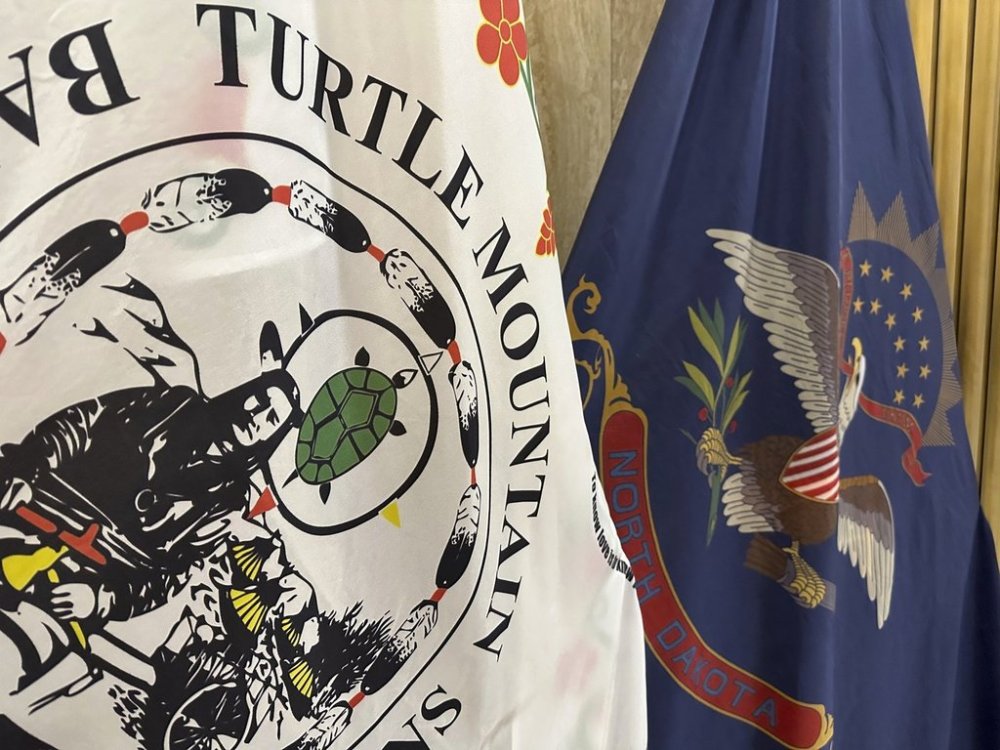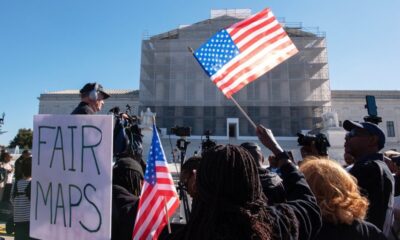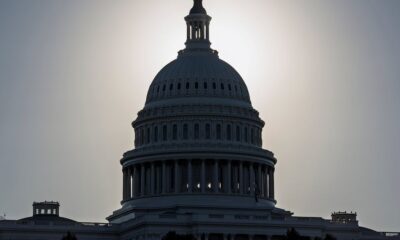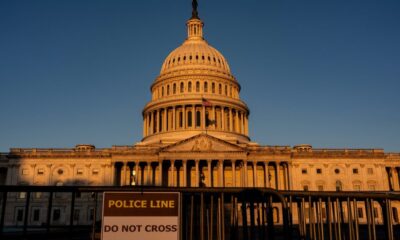World
Supreme Court Blocks North Dakota Ruling on Voting Rights Act

The Supreme Court has intervened in a significant redistricting dispute in North Dakota, blocking a lower-court ruling that could undermine a key provision of the Voting Rights Act. On Thursday, the justices issued an unsigned order that halts the implementation of a federal appeals court decision, which would restrict the ability of individuals and civil rights groups to file lawsuits under this landmark legislation.
This case centers on the legislative map approved in 2021, which the Spirit Lake Tribe and Turtle Mountain Band of Chippewa Indians contend dilutes their voting power, hindering their ability to elect candidates of their choice. The issue is particularly pressing for these tribes, whose reservations are approximately 60 miles apart. Following a trial in 2023, a federal judge ruled in favor of using a map that enabled the election of three Native American candidates, all Democrats, to North Dakota’s Republican-supermajority Legislature.
In May, the 8th U.S. Circuit Court of Appeals issued a 2-1 ruling that asserted only the Justice Department could initiate lawsuits under Section 2 of the Voting Rights Act. This decision conflicts with a long-standing judicial precedent that affirms the rights of private individuals to sue under the same provision. As noted by Richard Hasen, a law professor at UCLA, over 90 percent of Section 2 cases have typically been brought through private enforcement.
Potential Broader Implications
The Supreme Court’s decision to block the lower ruling suggests that it may take up the case for further consideration, with oral arguments potentially scheduled for as early as 2026 and a ruling expected by the summer of that year. Notably, three conservative justices—Samuel Alito, Neil Gorsuch, and Clarence Thomas—dissented, indicating a desire to allow the appeals court ruling to stand.
This case is one of two significant redistricting disputes currently before the Supreme Court. The other involves a second majority-Black congressional district in Louisiana, where the justices have called for additional arguments to be presented during their term starting in October. The issues to be discussed in this separate case have yet to be detailed.
The 8th Circuit Court, which oversees seven states—including North Dakota, South Dakota, Minnesota, and Arkansas—has recently made determinations that challenge the ability of individuals to enforce their voting rights. Following its ruling in the Arkansas case earlier this year, various states, including Minnesota, have sought to strengthen voting rights through state-level protections.
The ongoing legal battles underscore the importance of individual rights in the electoral process and could have lasting implications on voting access across the United States. As the Supreme Court prepares to address these complex issues, the outcome will likely resonate beyond North Dakota, influencing the landscape of voting rights nationwide.
-

 World3 months ago
World3 months agoScientists Unearth Ancient Antarctic Ice to Unlock Climate Secrets
-

 Entertainment3 months ago
Entertainment3 months agoTrump and McCormick to Announce $70 Billion Energy Investments
-

 Science3 months ago
Science3 months agoFour Astronauts Return to Earth After International Space Station Mission
-

 Lifestyle3 months ago
Lifestyle3 months agoTransLink Launches Food Truck Program to Boost Revenue in Vancouver
-

 Technology2 months ago
Technology2 months agoApple Notes Enhances Functionality with Markdown Support in macOS 26
-

 Top Stories1 week ago
Top Stories1 week agoUrgent Update: Fatal Crash on Highway 99 Claims Life of Pitt Meadows Man
-

 Sports3 months ago
Sports3 months agoSearch Underway for Missing Hunter Amid Hokkaido Bear Emergency
-

 Politics2 months ago
Politics2 months agoUkrainian Tennis Star Elina Svitolina Faces Death Threats Online
-

 Technology3 months ago
Technology3 months agoFrosthaven Launches Early Access on July 31, 2025
-

 Politics3 months ago
Politics3 months agoCarney Engages First Nations Leaders at Development Law Summit
-

 Entertainment3 months ago
Entertainment3 months agoCalgary Theatre Troupe Revives Magic at Winnipeg Fringe Festival
-

 Politics1 week ago
Politics1 week agoShutdown Reflects Democratic Struggles Amid Economic Concerns





















